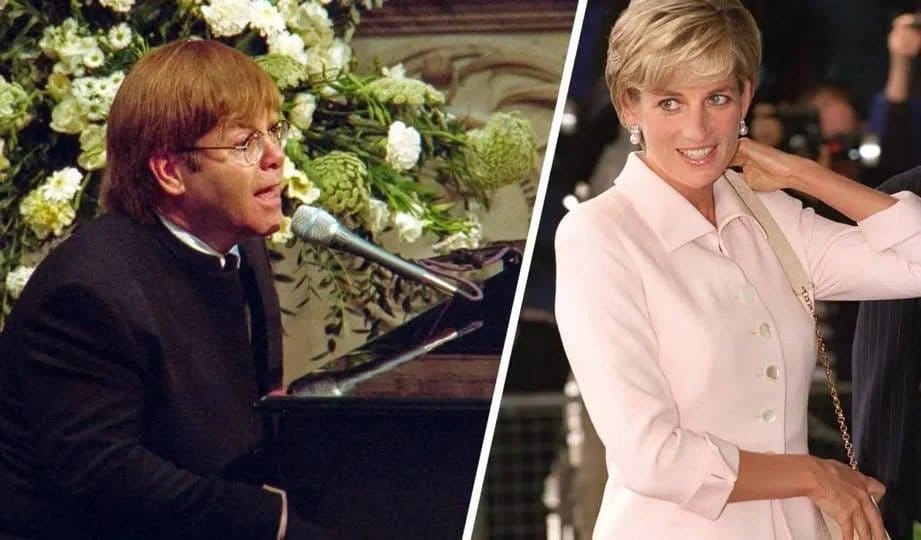On September 6, 1997, the world watched in collective grief as Princess Diana was laid to rest. Inside Westminster Abbey, a singular moment of music captured the heartbreak of millions. Elton John, both a global superstar and a personal friend of Diana, sat at the piano and performed a reworked version of his 1973 ballad “Candle in the Wind”—a performance that would become one of the most emotional and unforgettable moments in modern music history.
Originally written as a tribute to Marilyn Monroe, the lyrics were rewritten by lyricist Bernie Taupin for Diana, beginning with the haunting words: “Goodbye England’s rose, may you ever grow in our hearts.” The song, stripped of any grandeur, unfolded with quiet dignity inside the Abbey, without orchestral embellishment. Elton didn’t come to perform—he came to keep vigil. The moment moved forward with honesty and restraint, echoing the pain and love so many felt for the “People’s Princess.”

But the performance almost didn’t happen. Buckingham Palace reportedly had concerns, fearing the lyrics were “too sentimental” for such a solemn occasion. The Dean of Westminster, however, argued that the nation needed a voice “known to millions” to set the tone. Ultimately, the palace relented, and the moment was sealed in history. Elton’s performance bridged ancient ritual and raw human emotion, allowing the world to grieve not just a public figure, but someone who felt deeply personal to so many.
The power of that performance wasn’t just in the music—it was in its honesty. Unlike grand state occasions, Diana’s funeral felt human. Elton’s voice gave space to millions of private mourners—parents, siblings, friends—each carrying their own memories of loss. It turned a royal funeral into a public moment of empathy, one that didn’t flinch from pain but embraced it with compassion.

In the decades since, the image of Elton in black, head bowed at the piano, remains etched in history. We remember the floral tributes, the silence of crowds, and the prince’s solemn walk behind their mother’s coffin. We remember “Candle in the Wind 1997” not just as a chart-topping single, but as a rare moment when popular music perfectly expressed national mourning. It was not just performance, but truth set to melody—and that is why it still echoes today.





